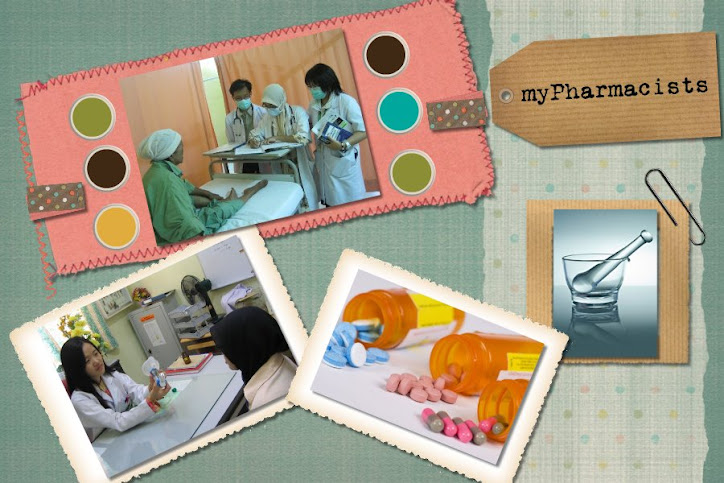Best of luck to all who are siting for the exams!!
Format
- Duration: 3 ½ hours
- MCQ (50 questions; 1 mark each)
- Tests us on the understanding of pharmacy legislations
- SAQ (5 questions; 10 marks each; 50 marks in total)
- For each 10 marks question, approximately “20 points” are needed.
- Tests us on the application of pharmacy legislations
- Btw government pharmacists are REGISTERED and not LICENSED =) Licensed pharmacists are private sector people.
- In the Third Schedule of the DD (list of “exemptions” from DDA; as given by DDR 25)), everything would be a PS (eg. methadone, morphine and pethidine) EXCEPT (codeine, diphenoxylate and pholcodeine; which are Group C) and opium (which is Group B).
- In law, shall means “wajib”.
- What is the difference between drug, poison, non-poison, psychotropic substance and DD?
- Drug (see definition in SODA) → … substance, product… internally or externally for medicinal purposes.
- Poison (anything in First Schedule of PA)
- Non-poison (by definition, anything NOT in First Schedule of PA eg. PCM and LMS)
- Psychotropic substance (anything in Third Schedule of PA)
- DD (Anything in First Schedule of DD)
- THEREFORE, drug consists of poisons, non-poisons, PS and DD (these are sub-sets of drug) as all these are within the definition of → … substance, product… internally or externally for medicinal purposes.
5. How to differentiate between “poisons book” and “prescription book”?
- Prescription book – for dispensed medicine (Group B and C)
- Poisons book – OTHER than dispensed medicine (eg. drugs for research purposes).
Q: Explain the supply of injection morphine sulphate for the purpose of medical treatment. [FOCUS on this question, likely to come out again]
- What is the “guiding factor” of this question?
- Classification of injection morphine sulphate → psychotropic substance under the third schedule of the PA 52.
- NOT DD drug (because injection morphine sulpate is a “preparation” and not raw material (eg. morphine powder) → Note: read DDR third schedule (R25).
- Therefore, we are to supply it in accordance to PPSR.
- NOTE: We will not get marks if you jumble up everything, ie. explain the supply of injection morphine sulphate using PPSR and DDR. Shows that we “tembak”.
- Explain what’s “for the purpose of medical treatment”. PPSR R. 11 (SR 1 – 7).
- What else to mention in the answer: R 19 (recording), R 22, 23(register), R 28 (labeling).
- NOTE: For each regulation, just explain in your own words (no need to say stuff like “notwithstanding” etc.)
Q: Explain the sale of injection morphine sulphate for wholesale supply
- What is the “guiding factor” of this question?
- PPSR R 12 states that “… other than medical treatment” → this implies WHOLESALE.
- Everything in which the “end user” is not a patient is WHOLESALE. Eg. of “end user” being a patient = retail.
- Therefore, explain using PPSR R. 12 (SR 1 – 2), R 20 (records for wholesale), R 22, 23 (register for wholesale), R 26, 27 (labeling for wholesale).
- NOTE: Always start with definition/interpretation. Use PA.
(ii) Dispensed medicine (S2 (1))
- There are 2 parties involved in dispensed medicine:
- Pharmacists (S16?)
- Non pharmacists (S19)
- Also talk about group B medicine (S21 (1b,c)) and group C medicine (b)
- How about recording and labeling of dispensed medicine; and contrasting between government and private settings?
|
|
Government | Private |
| Recording | PR 23 (3) | PA S 24 (SS1a – d) |
| Labeling | PR 23 (4) | PR 12 (a – e) |
| NOTE: How about for the psychotropic drugs’ recording and labeling? | Speaker said “almost the same for GOV and PVT”. | |
- NOTE: PR 23 (outpatient), 24 (inpatient) and 25 (storage) is for GOV hospitals BUT PR 24 ALSO applies for PVT hospitals.
- How about immediate personal supervision?
- S12, 19.
Q: Explain the requirements for a person to become a pharmacist.
- ROPA (S6, 6A, 6B, 8, 11A – F)
- ROPR (R6, 8, 12)
- NOTE: Basically for this question, just expound on the necessary qualifications, experience, and don’t forget the necessary forms/documents to be sent in/fees if any, etc. → how to become a full-fledged registered pharmacist (FRP). Also talk about who registers us (Pharmacy Board) and to whom do we APPLY to be registered (the “registrar” (ie. the Director of Pharmaceutical Services).
- The government has 2 means of procurement/obtainment:
- from a licensed wholesaler (local) DDR 5
- importation (DDA S20)
- For the supply, refer to:
- DDHGEO.
- Explain using Schedule A (Order 1 – 9). In Order 2, is stated “part 1 of the second schedule” → the register (as mentioned in DDR 15). DRAW this out.
- NOTE: Contravention means any person who does not follow/obey/comply to directive issued by…)
- SODA – drugs (S 10, 11)
- CDCR – products (R7, 8, 28, 29).
- NOTE: (i) Who issues licences under CDCR? (Director of Pharmaceutical Services); (ii) Who registers products? (DCA; not BPFK!)
Q: What are the prohibitions regarding medical advertisements?
- S3, S4, 4A, 4B
- NOTE: MASA prevents improper advertisements but not the SALE. (For SALE, go back to SODA/CDCR).
- NOTE: Diseases in the schedule, strictly CANNOT advertise. But for other diseases, eg. osteoporosis, MAB may consider and give approval. Hence, Anlene® can advertise that its milk helps prevent osteoporosis or whatever
- NOTE: The label of product is an advertisement!




Hi, I will be sitting for the SPA exam in November 2017. If i have any question could i refer to you?
ReplyDeleteThanks in advance
What's DDHGEO stands for?
ReplyDeleteDangerous drug (hosp, etc) (general exemption) order
DeleteHello, may I know what are the Group F poisons?
ReplyDelete